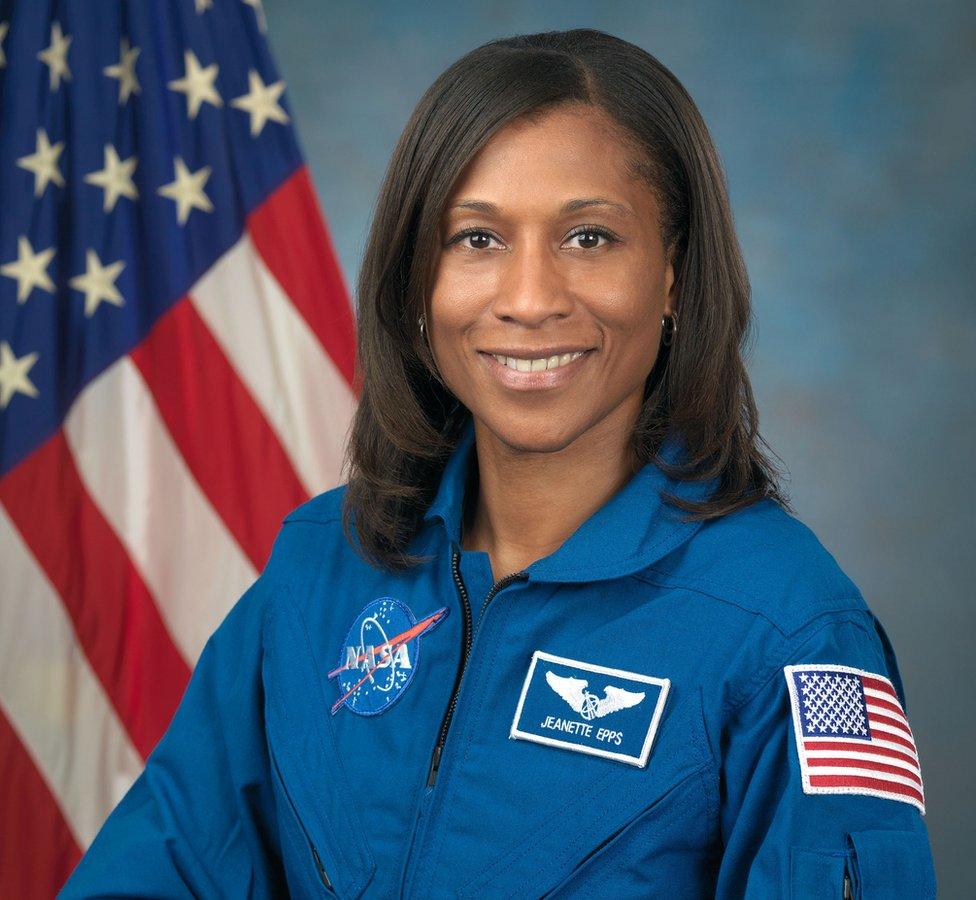Nasa removes US astronaut from ISS mission
- Published

The US astronaut Jeanette Epps has been removed from her upcoming mission to the International Space Station (ISS) just months before launch.
Dr Epps was to have been the first African-American astronaut assigned to the space station crew.
She would have flown aboard a Russian Soyuz flight in June but is being replaced by another astronaut.
Nasa has not given a reason for withdrawing her but says she will be considered for future missions.
Jeanette Epps, born in Syracuse, completed a doctorate in aerospace engineering in 2000. After graduating, she worked in a laboratory for two years before being recruited by the Central Intelligence Agency (CIA).
She worked as a technical intelligence officer for seven years before being selected as a member of Nasa's 2009 astronaut class. Her time with the CIA included .
The Syracuse-born astronaut was to have flown to the space station in June
Dr Epps will be replaced by Serena Au帽贸n-Chancellor, who has worked with space station crew members in Russia
In an interview with Elle magazine last year, Dr Epps said: "I get very excited when I think about being up in space, partly because I compare it to going into a war zone.
"Both are very dangerous but, for me, it's a no-brainer: I would rather face the dangers in space than go back to a war zone."
She added: "When people come back from space, I see how much they want to go again."
Dr Epps was due to launch to the orbiting outpost from Baikonur, Kazakhstan, along with the German European Space Agency (Esa) astronaut Alexander Gerst and the flight's commander, Russian cosmonaut Sergei Prokopev.
Nasa offered no reason for the decision to remove her from the Expedition 56/57 mission. to assume duties in the Astronaut Office".
Her replacement, Serena Au帽贸n-Chancellor, is a medical doctor from Fort Collins, Colorado. Dr Au帽贸n-Chancellor previously spent more than nine months in Russia supporting medical operations for space station crew members.